Posted by Anjum Andrabi on October 15th, 2008
Tumors of the horn are essentially squamous cell carcinomas and are common in aged cattle. In cattle with involvement of the horn, the first sign is distorted growth. The tumor usually invades the sinuses and is at best incurable.


Posted in Pathological | No Comments »
Posted by Anjum Andrabi on September 29th, 2008
See how a horse is castrated (testicles removed) in these pictures. The persons who perform this savage operation are usually locals with no medical training. Their chief tools are razor blades and an iron sickle. The legs of the horse are tied to wooden poles which are held above its trunk. Another person holds the horses head pinned to the ground. The skin of the scrotum is cut open using the razor and then the sickle, which is heated red, is used to simply burn through the testicular attachments and cord. Needless to mention that no anesthetic is used at any stage during the process. This practice is prevalent especially among the tribal communities living in the highlands of the Kashmir valley.
Questions that may come to ones mind:
1. Why is it done?: No, this is not done for any sadist pleasure, there is some scientific evidence that castration of animals causes them to turn docile and easy to handle.
2. Why use an untrained person? Is it cheaper?: Not at all, in fact the practitioners demand good money, a single operation may fetch them a 1000 rupees ($25) and above. While if this is done at a state sponsored veterinary center, it would be free for the owner.
3. Why do horse owners prefer these quacks to the qualified veterinarians?: For a simple reason, no Vet would perform this surgery without proper equipment and drugs, both of which are missing from the rural centers. Some vets carry their own surgical sets but charge much more than our “cruel doctor”, so his popularity remains.
4. How bad is it for the horses?: Apart from the evidently excruciating pain, the horses get infections, abscesses and some even die of peritonitis and shock since no post operative antibiotic is used. Also horses are especially sensitive to tetanus and as one can see from these snaps, asepsis is the least concern. Moreover, when a bleeding cord retracts into the abdomen it can lead to many complications later on like adhesions and strangulation.
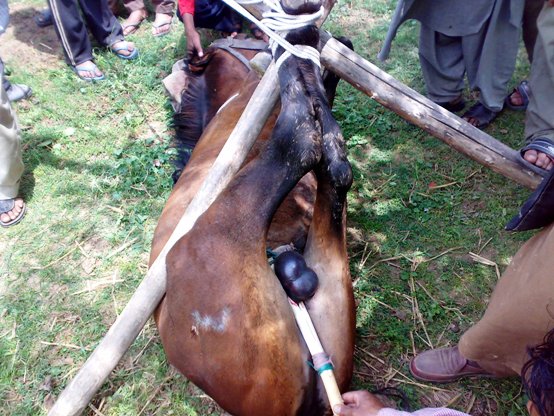
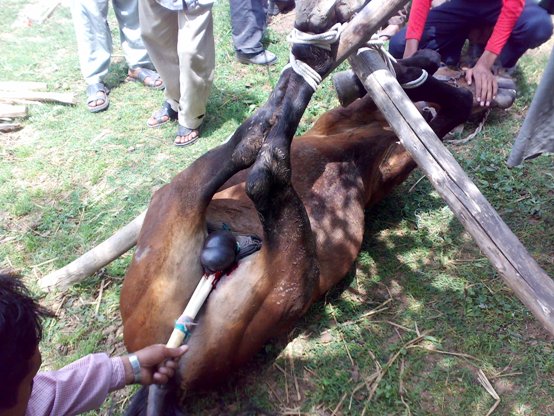
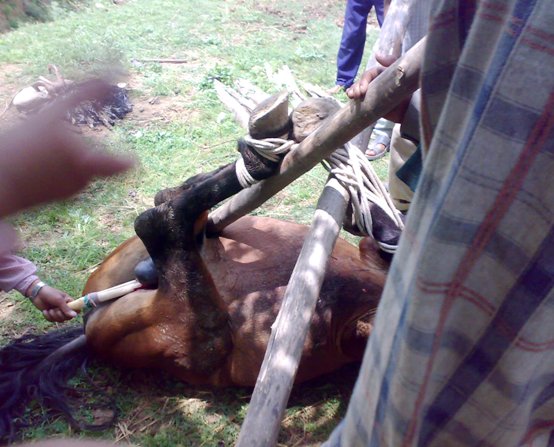
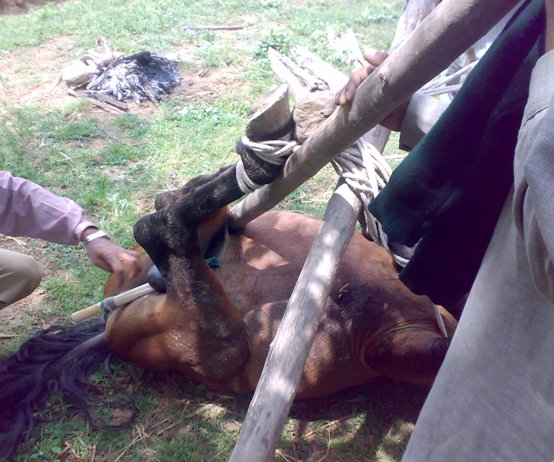
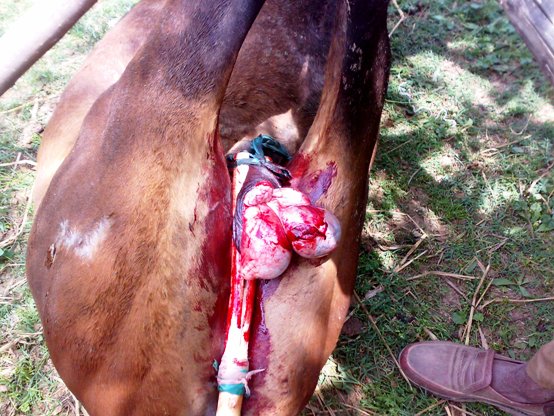
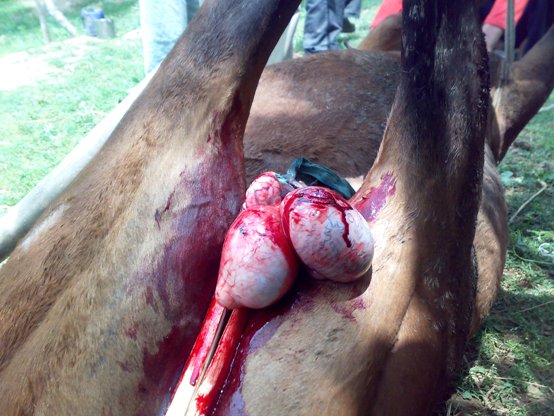
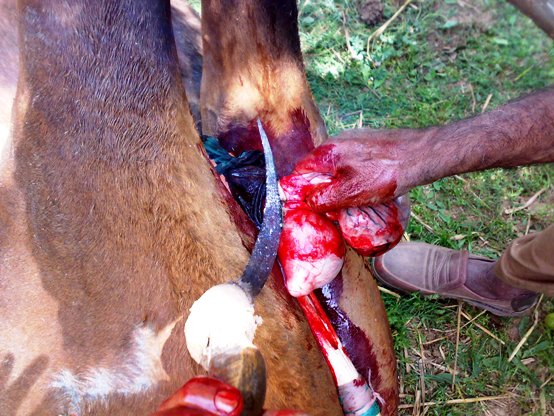
This is the heated sickle
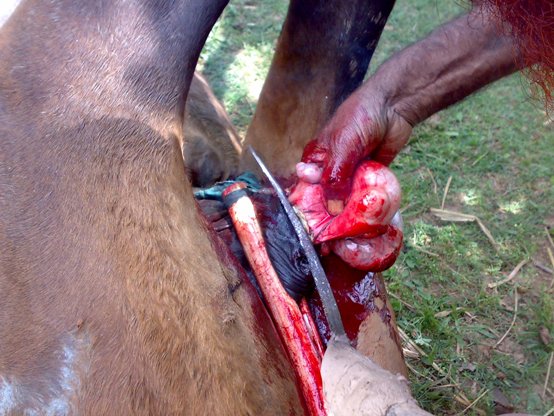
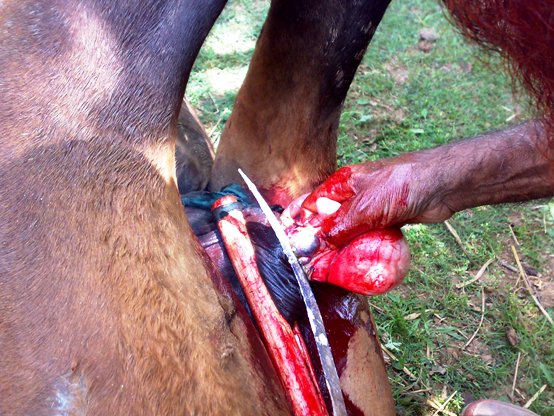
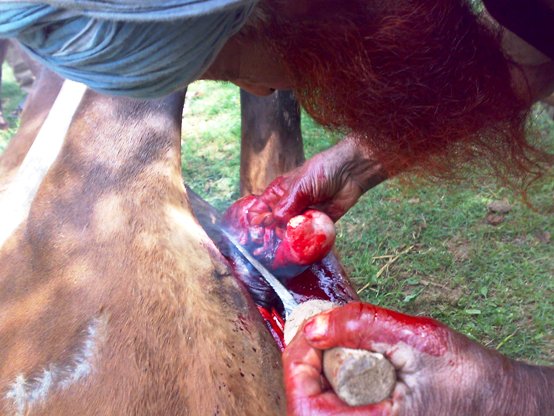
Can you see the steam and smoke coming from the hot sickle
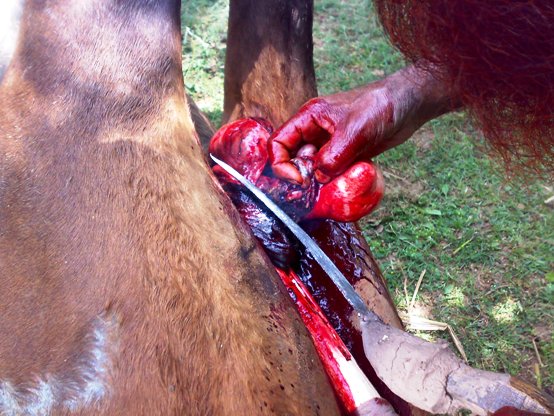
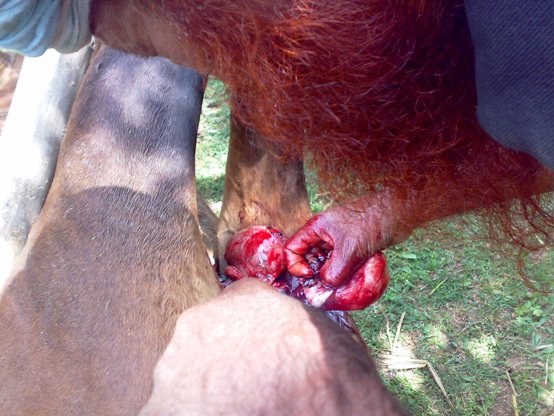
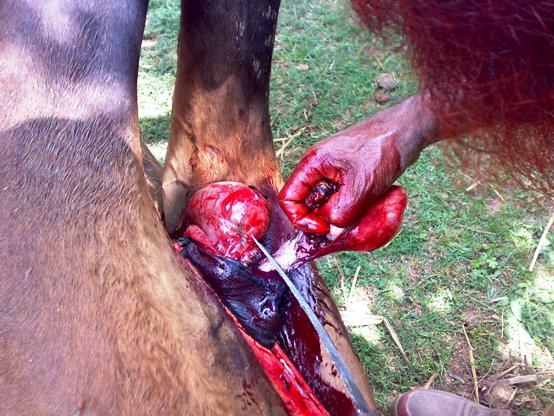
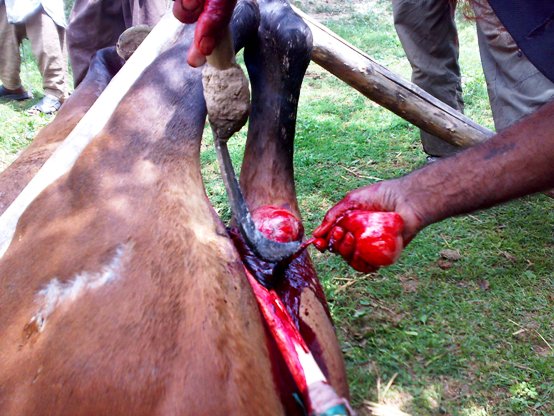
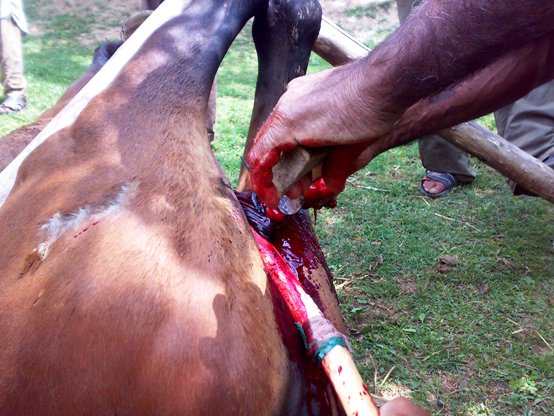
Applying alum for hemostasis

Posted in General | 11 Comments »
Posted by Anjum Andrabi on September 29th, 2008
Its not for the want of legislations but their implementation that these Pheasants (Chakoor) are held captive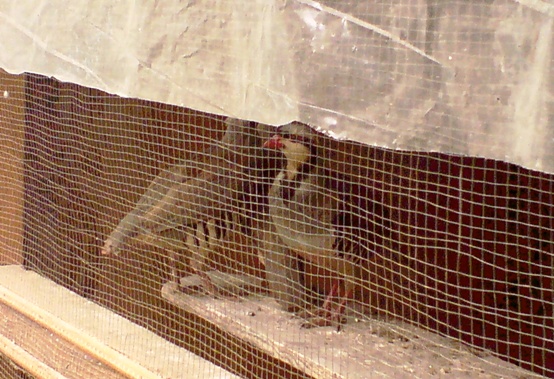
Posted in General | No Comments »


















